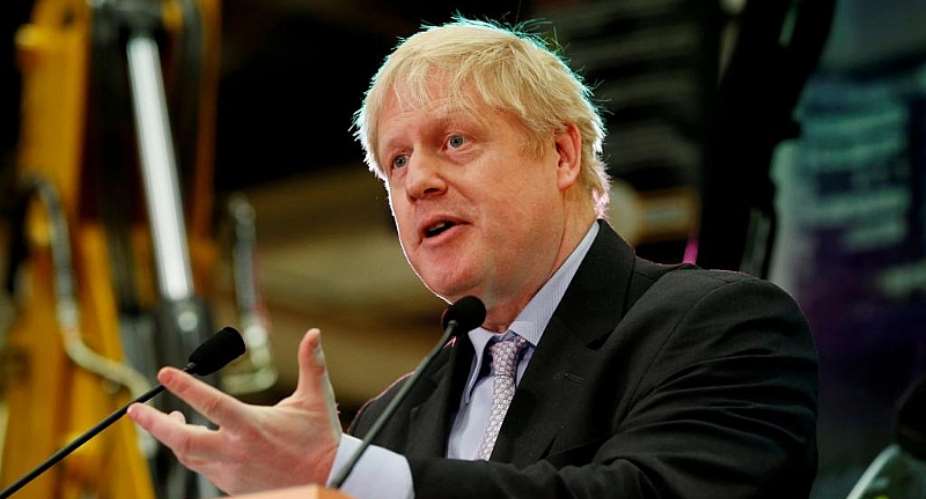Former British foreign secretary Boris Johnson, considered the prime candidate to become the next prime minister, will be facing a judge over allegedly lying while campaigning for Brexit while serving as mayor London, according to a judge on Wednesday.
"The allegations which have been made are unproven accusations and I do not make any findings of fact," said Judge Margot Coleman in a written decision.
"Having considered all the relevant factors I am satisfied that this is a proper case to issue the summons as requested," she wrote, without giving an indication as to when the hearing would take place.
Johnson was named in a private case where he claimed that Britain sends £350 million, or 400 million euros, per week to the European Union. This allegation was put on the side of a bus that toured the UK to campaign for Brexit.
The 400 million euros is in fact Britain's gross contribution, but if payments from the EU to Britain's public sector as well as other contributions are factored in, the figure is lower.
Marcus Ball, a businessman whose lawyers said Johnson “repeatedly lied and misled the British public as to the cost of EU membership", crowd-funded the legal fees to bring Johnson to court.
Johnson, called the “proposed defendant” by Judge Coleman, said he would need to attend a preliminary hearing, the step before the case could be taken to trial.
Will this scupper Johnson's chances for the top job?
Although Johnson is considered the frontrunner to be the next prime minister after Theresa May steps down on 7 June, this hearing and possible trial could dash his hopes.
Johnson's lawyers called the issue “a stunt”, which would try to undermine Brexit and the referendum result.
One of his Conservative cronies, pro-Brexit MP Jacob Rees-Mogg, believes this issue should not be brought to court.
"Politicising justice is a really bad idea and it's actually what happens in totalitarian regimes where people get prosecuted for free speech," said Rees-Mogg.
Judge Coleman said she considered the application and the reasoning of Johnson's lawyers.
"I accept the defence submission that when the applicant commenced his consideration of whether to bring a private prosecution against the proposed defendant, some three years ago, there may have been a political purpose to these proceedings," she said.
But the information for the summons was filed on 28 February, which the judge said the defence reasoning did not apply.
"I do not accept the application is vexatious," she wrote in the 14-page decision. "This is an unusual and exceptional application with a considerable public interest and it is right that full reasons are provided."
The maximum penalty for misconduct in public office is life imprisonment.





 EC pays over GH¢69 million to 116,211 temporary staff for 2023 District Level El...
EC pays over GH¢69 million to 116,211 temporary staff for 2023 District Level El...
 Police directive to stop searches on foreign trucks raises security concerns — D...
Police directive to stop searches on foreign trucks raises security concerns — D...
 Stop checking Trucks bearing foreign plates — Police management to regional comm...
Stop checking Trucks bearing foreign plates — Police management to regional comm...
 ‘Stop extorting, harassing local truck drivers too’ — Ablakwa jabs Ghana Police ...
‘Stop extorting, harassing local truck drivers too’ — Ablakwa jabs Ghana Police ...
 ‘Of course, your misgovernance legacy deserves to be destroyed’ — Mahama replies...
‘Of course, your misgovernance legacy deserves to be destroyed’ — Mahama replies...
 I won’t protect your ‘legacy’ of corruption, arrogance – Mahama replies Akufo-Ad...
I won’t protect your ‘legacy’ of corruption, arrogance – Mahama replies Akufo-Ad...
 Depreciating cedi: We better adopt a currency board or official dollarisation – ...
Depreciating cedi: We better adopt a currency board or official dollarisation – ...
 Limited Voter Registration: Three people arrested for causing disruptions during...
Limited Voter Registration: Three people arrested for causing disruptions during...
 Inflation in April dropped to 25.0% – GSS
Inflation in April dropped to 25.0% – GSS
 The rumours did not emanate from us — Société Générale on purported exit from Gh...
The rumours did not emanate from us — Société Générale on purported exit from Gh...
